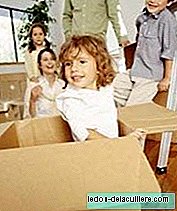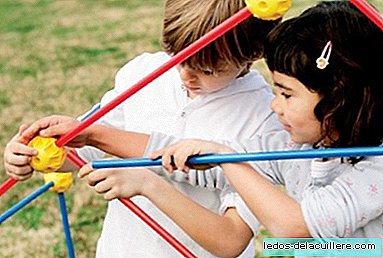
A move is quite stressful for adults, but the fact of changing houses, and sometimes schools, is even more traumatic for children.
Children are very attached to the routine and their own place. They perfectly know the whole house, its corners, the rooms and even the location of the furniture. So moving to a new house means starting over again, getting used to new spaces again until they feel safe again, but for that to happen without trauma, they will fundamentally count on the support and trust that you and the rest of the family Provide him. Above all, if in addition to changing houses, the child also changes schools.
Do not believe that the child does not find out anything and that is why you should not make him a participant in the experience. On the contrary, try to keep him abreast of the move, remember it frequently and speak naturally about the subject, without hiding anything. It is important to be positive, to talk about the advantages of the new site, without lying to you or creating false expectations. It is not the time to change the furniture in the child's room, you could feel even more confused. Nor is it a good time to make big changes like passing the child from the crib to bed, leaving the pacifier or diapers. You better wait a while until the situation becomes more stable.
Young children, as a symptom of defense, may begin to suck their fingers, become more irritable or more attached to the mother or father. Older children may pee back in bed when they no longer do so, lose their appetite or feel somewhat disoriented.
You can make them make small decisions like what color do you want to paint your room? Or where do we put your toys? Keep the toys with him in the boxes, explaining that they do not disappear, but go "on a trip" to the new house. You can explain it through the game, loading a toy truck or things like that. In this way, they will feel that they participate and not that the new rules impose them.












